Recent News
Video: Shark Makes ‘Visit’ To Shelly Bay BeachMonday, June 04, 2018
Yet another video of a shark has gone viral, this time with footage appearing to show the shark coming in close to shore at Shelly Bay Beach.
Say no to Plastics
Friday, June 01, 2018
Today, June 8th, is World Oceans Day, and the theme for this year is the prevention of plastic pollution to encourage healthy oceans. On World Oceans Day, people around our blue planet celebrate and honour the ocean, which connects us all.
Kids donate birthday money to BZS
Friday, June 01, 2018
Instead of spending their birthday money on video games or the latest dolls, on Monday 14th May 11-year-old Oliver "Olly" Cherry and 8-year-old twins Hayleigh and April Cherry presented Dr. Ian Walker, curator of the Bermuda Aquarium, Museum and Zoo, with a donation of their birthday money to be put towards the Bermuda Zoological Society's education programmes.
Choy goes to “Raw” at the Florida Aquarium
Friday, June 01, 2018
Last month BAMZ Aquarist, Choy Aming, was able to attend the Regional Aquatics Workshop - RAW - at the Florida Aquarium in Tampa, thanks to the funding from the Bermuda Zoological Society. The workshop took place from 14th-18th May, and according to Choy it was an intensive 5 days.
MSA students raise money for the BZS Amphibian Project
Friday, June 01, 2018
On Wednesday, 28th March the students of the two Mount Saint Agnes' grade 3 classes held their "TOAD-ally Terrific tag sale", a fundraising event for the Amphibian Project which is supported by the Bermuda Zoological Society (BZS). After the two-day event, the students were able to raise over $1,300 for the Amphibian Project.
About
GovernanceAbout Us
Newsletter
Latest News
Gift & Bookstore
Contact
General Inquiries
info@bzs.bm
Latest News
All the latest updates and news from the Bermuda Aquarium, Museum, and Zoo, one of Bermuda's leading visitor attractions!
Excerpt from WILD News April 2018
When new fish arrive at BAMZ, they must first undergo a minimum of 30 days quarantine in order to diagnose any marine parasites which, if left untreated, can infect the other inhabitants of the aquarium hall tanks.
On Thursday, 22nd March, Patrick Talbot, Curator of the Bermuda Aquarium, Museum and Zoo, with the assistance of Marine Collector, Jorge Sanchez, conducted the examination of the quarantined blue parrotfish, queen parrotfish, and rainbow parrotfish before their transfer into the display tanks.
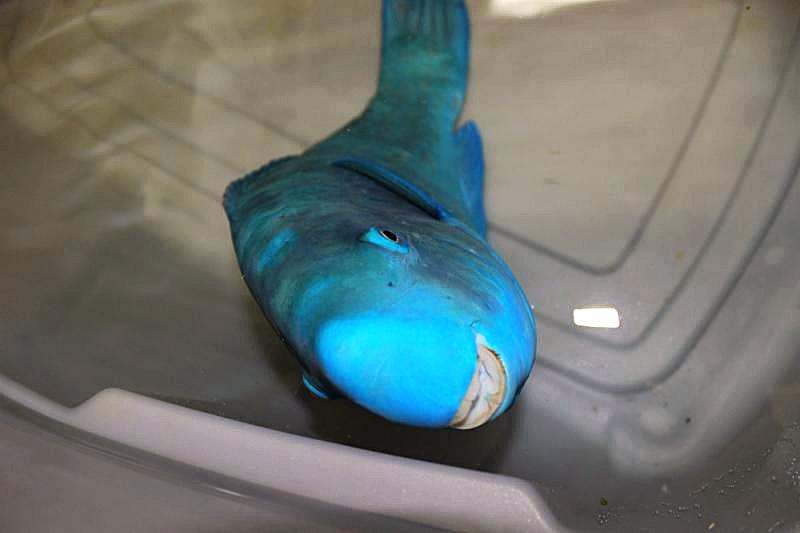
Blue parrotfish going under anesthetic
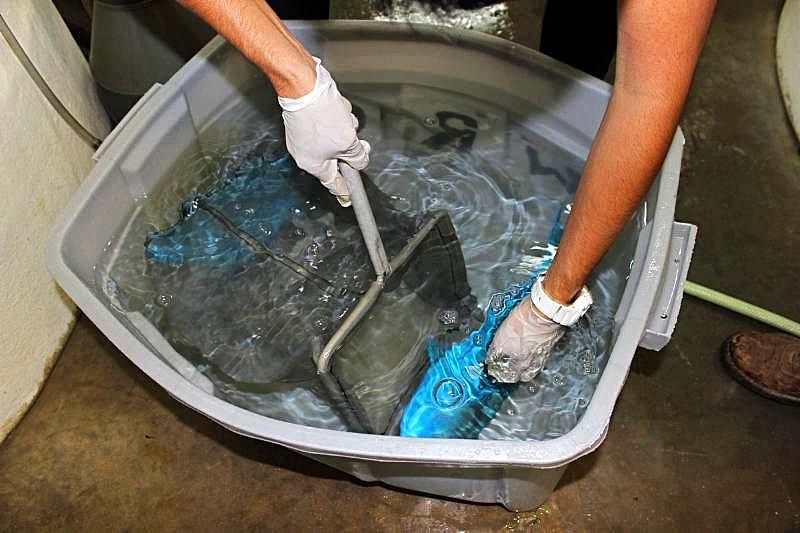
Blue parrotfish being removed from anesthetic
Before each fish was examined, they were first anesthetized in a solution rendering them unconscious and insensible to any pain. The length of time it took for each fish to go to sleep, was also the approximate amount of time it would remain sedated, giving Mr. Talbot an idea of how much time he had to take samples from the fish.
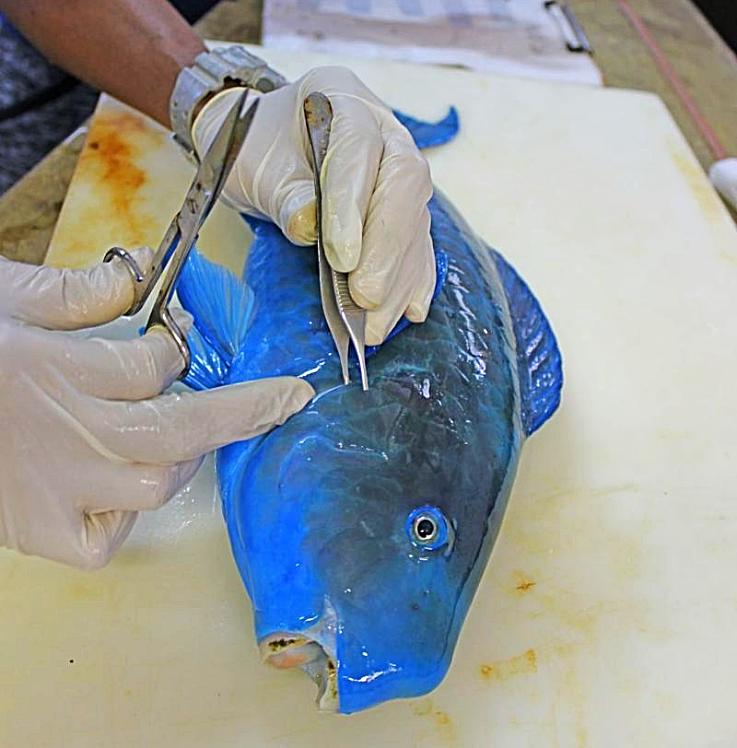
Blue parrotfish having its gills clipped
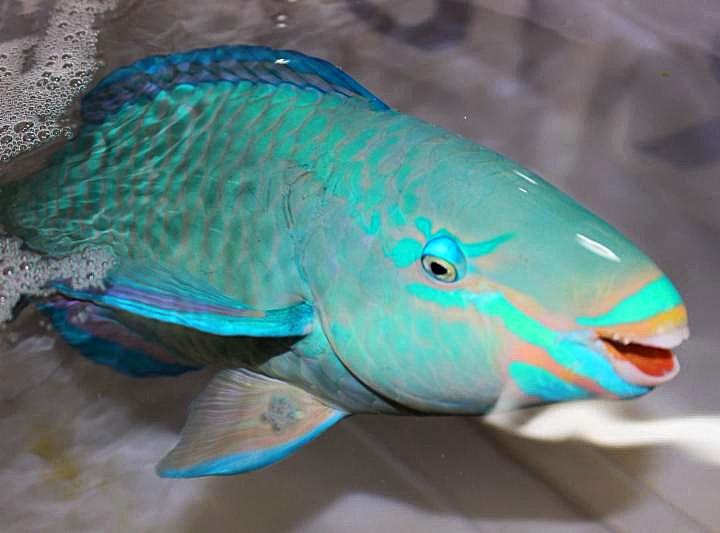
Queen parrotfish going under anesthetic
Each fish went through the same procedure; after sedation, they were removed from the water and placed on a cushion wrapped in plastic. Mr. Talbot quickly took a scale scrape, and a gill clipping - basically taking a sample of the skin mucous covering the scales and a tiny gill biopsy. The fish was then placed in a tub of fresh water, and Mr. Sanchez bubbled oxygen in the water surrounding the gills. The fresh water acted as final medication of sorts, as it would kill most external parasites (should there be any) and the bubbled gas helped ensure the fish had oxygen during its recovery from the anesthetic. After a few minutes, the animal was responsive and returned to a separate tank to await results of the procedure.
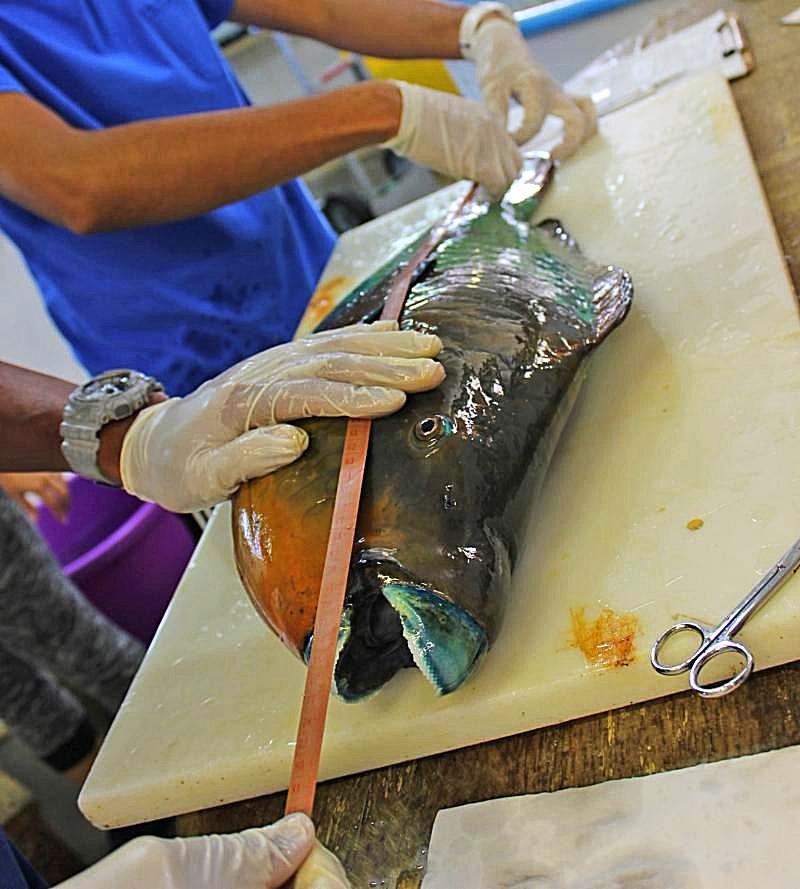
Rainbow parrotfish being measured
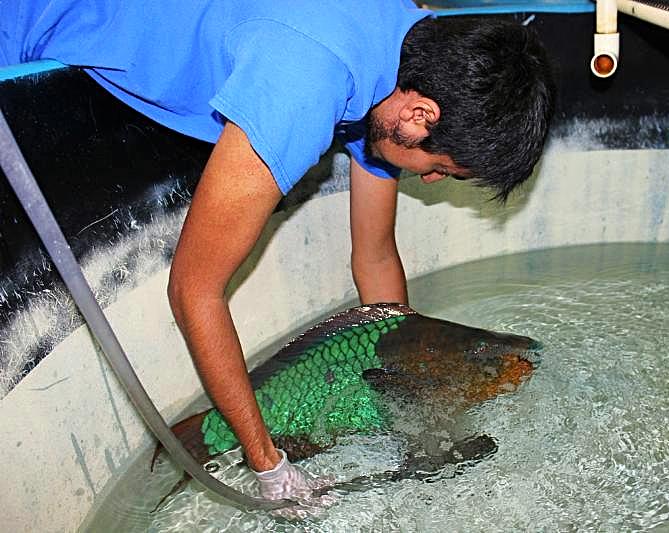
Mr. Sanchez running oxygen over the Rainbow parrotfish gills to aid in its recovery from the anesthetic
Once all the fish were sampled, Mr. Talbot took the scale scrapings and the gill clippings into the laboratory to be examined under a microscope for parasites infections, such as protozoa. If a parasite was found on either sample, the fish would have to go through another two weeks of quarantine and further treatment.
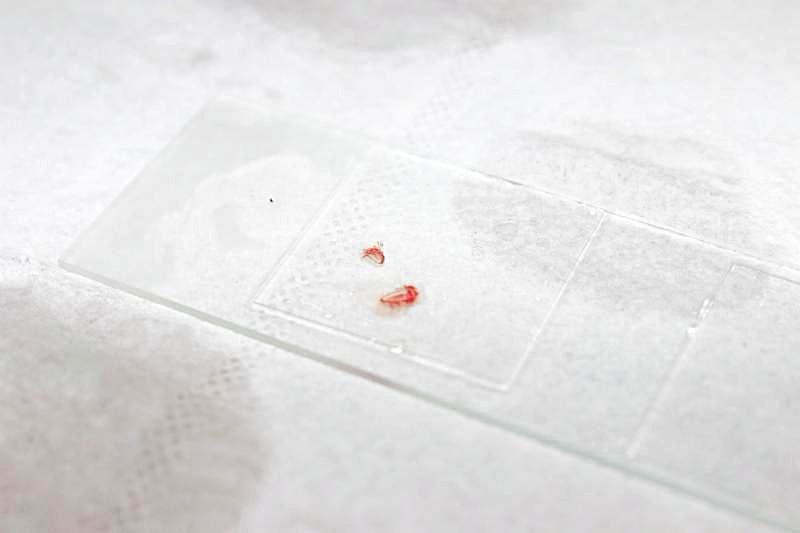
Gill clippings on a slide ready to be examined under a microscope
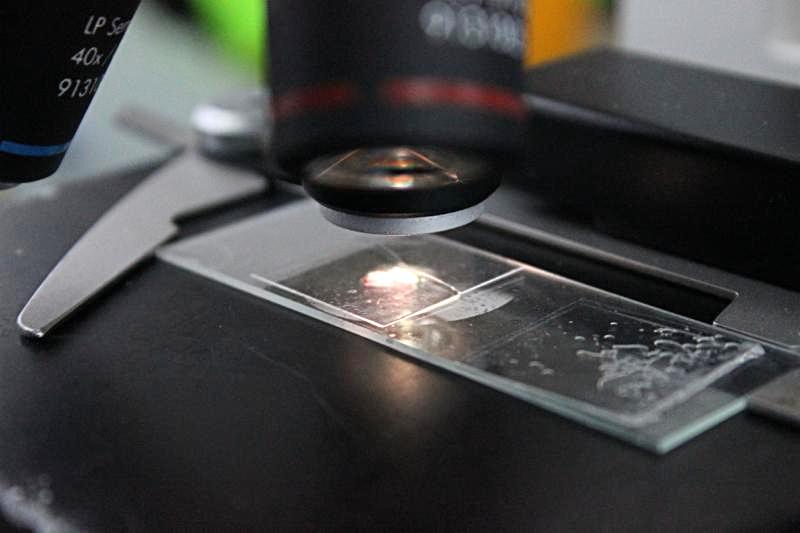
Gill clippings being examined
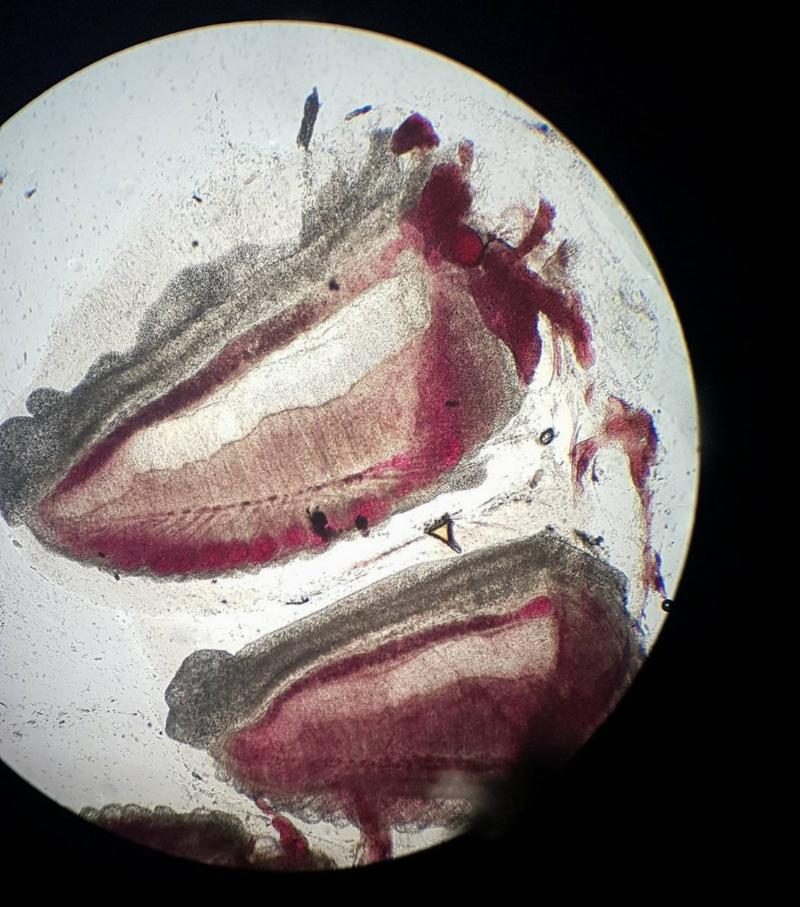
400x magnification of gill clippings
Thankfully, upon completion of the examination, all three fish were parasite free and received a clean bill of health. The queen and blue parrotfish were placed in the parrotfish habitat in the Aquarium Hall, and the rainbow parrotfish was placed in the North Rock habitat.
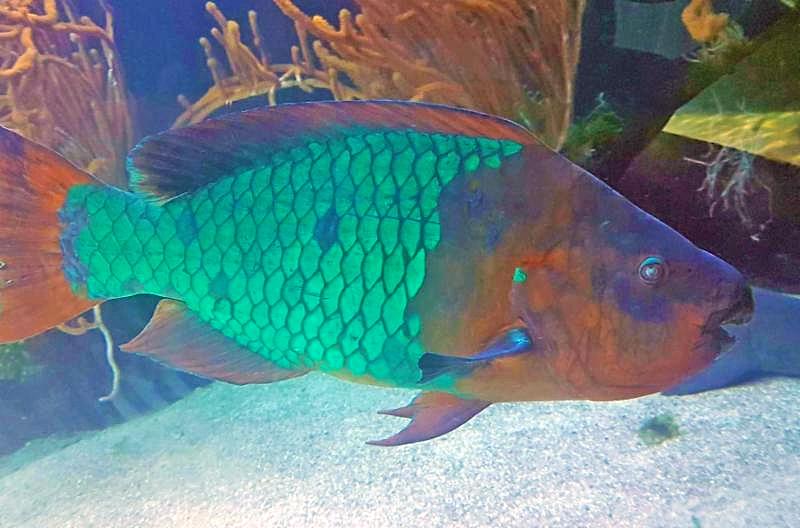
Rainbow parrotfish in the North Rock habitat
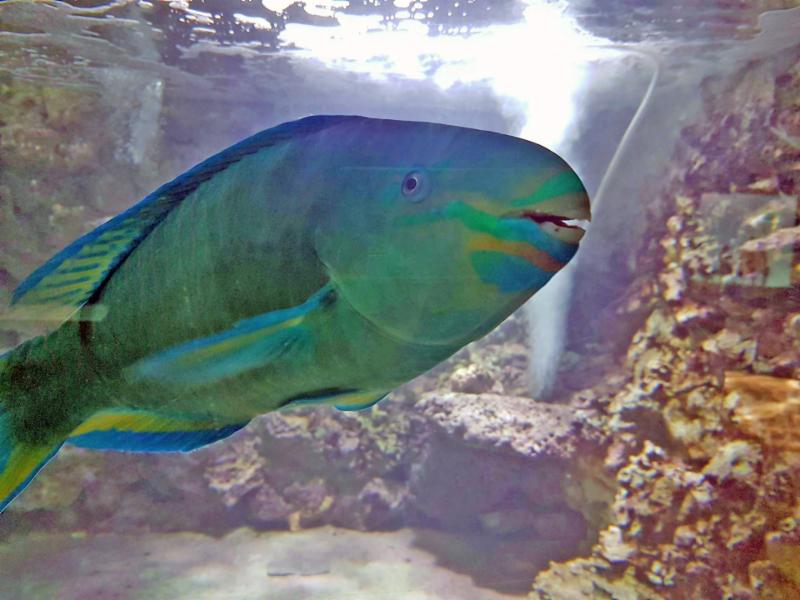
Queen parrotfish in the parrotfish habitat


